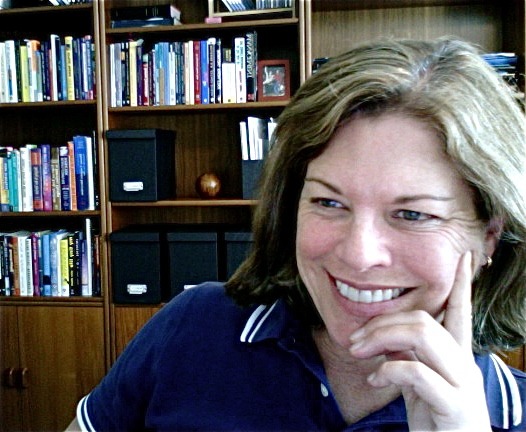Alison Head: Investigating Information Literacy (Part One)

Alison J. Head, Ph.D. is the executive director of Project Information Literacy (PIL), a Fellow at Harvard University’s Berkman Center for Internet and Society and the Harvard Library’s Innovation Lab. Her research interests include information-seeking behaviors of early adults, information literacy and lifelong learning, Web adoption and diffusion, and usage of social media for collaborative learning. She spoke at OLA Super Conference 2013 on “What Is It Like to be a College Student in the Digital Age?” and graciously agreed to answer the following questions for InsideOCULA. The resulting interview will be presented in two parts, starting with part one below; watch for part two coming in our next issue.
Q: How did information literacy become your research subject of interest?
A: In the 1980s, about a decade before anyone had ever heard of the World Wide Web, I managed a small grant for a nonprofit organization that worked with farm workers in Northern California to figure out their information needs, especially how they found information and what sources they used.
We found farm workers relied on radio as their primary source of information. It made sense; they listened to the Spanish station while they worked in the vineyards. They wanted to know more about pesticide exposure and treatment [and] about training opportunities for learning English. A show we produced about renters’ rights encouraged some to come forward and speak out. They were living in hideous conditions –intermittent running water, no heat, and rotting walls. The district attorney brought an action against the landlord, forcing him to provide livable housing conditions the farm workers. It was a huge victory.
It became very clear to me that information – and being able to find and use it – is power. I was hooked; finding and using information became a lifelong interest.
Q: You discuss some differences among students of different disciplines in your reports; what would you say the main distinctions are when it comes to research habits?
A: In our 2010 survey, we found respondents studying business administration and engineering reported more difficulty with searching and applying information than did students majoring in arts and humanities, social sciences, or the sciences.
There’s a plausible explanation that helps explains these results. Our findings suggest those majoring in engineering and business administration may be less experienced with conducting library research, because…their assignments may require more case studies, labs, or fieldwork, rather than using the library to search for secondary sources.
A finding from our 2010 content analysis study of 191 research assignments confirms this explanation. We found that faculty in arts and humanities courses were more likely than those in other disciplines to [guide students] to use the library shelves, online library sources, and to a lesser degree, librarians. These findings suggest students in arts and humanities may have a lot more practice at library research and so they have fewer difficulties with it than students in other majors.
Q: The low profile of librarians in your research report “Truth Be Told: How College Students Evaluate and Use Information in the Digital Age,” raises questions about the effectiveness of library instruction. Do you have any insights into what instruction styles are most effective for students?
A: We are in the middle of a study about first-year college students. So far, we have discovered some initial trends about the effectiveness of library instruction. Last fall, first-year students at six different US colleges and universities told us they considered librarians (and their English composition instructors) the most helpful people to them on campus.
Moreover, student’s comments suggest that an early intervention approach – one librarian teaching coming in and teaching a small class of fewer than 15 students – has positive effects. We are analyzing students’ comments about how the librarian-student partnership continues after the “one-shot” sessions, and if it does.
Q: Your present Passage Studies project looks at students transitioning from high school to college/university. How are they unique?
A: The first week I was out in the field conducting interviews with first-year students, a librarian wryly smiled and said to me, “You know, freshmen are from another planet – that’s what you’re going to find.” Freshmen are unique in the sense of their lack of research experience. They are being asked to learn in ways that stretch well beyond what most high school curricula ever required or prepared them to do.
Yet, they are engaged in the information available to them – and in many possibilities for learning. As one student put it: “I’m sitting in the library in the history section surrounded by all sorts of books about kings, ancient times, and different aristocracies and that’s really interesting, but then I start thinking, this is cool, there is so much here, but how am I ever going to find what I want and need? And you’re just kind of stuck on your own. In high school it was ‘here are the five books we have and you can choose from what we’ve got.’”
This anecdote explains why so many freshmen we have interviewed have told us they are both “excited” and “overwhelmed” by their new information landscape. There is a big information leap from high school to college and it’s full of interesting challenges for librarians. Librarians need to orient new students, but do it quickly while initiating a partnership that will continue for the next four years. It’s a tall order.
Carey Toane, InsideOCULA deputy editor.


